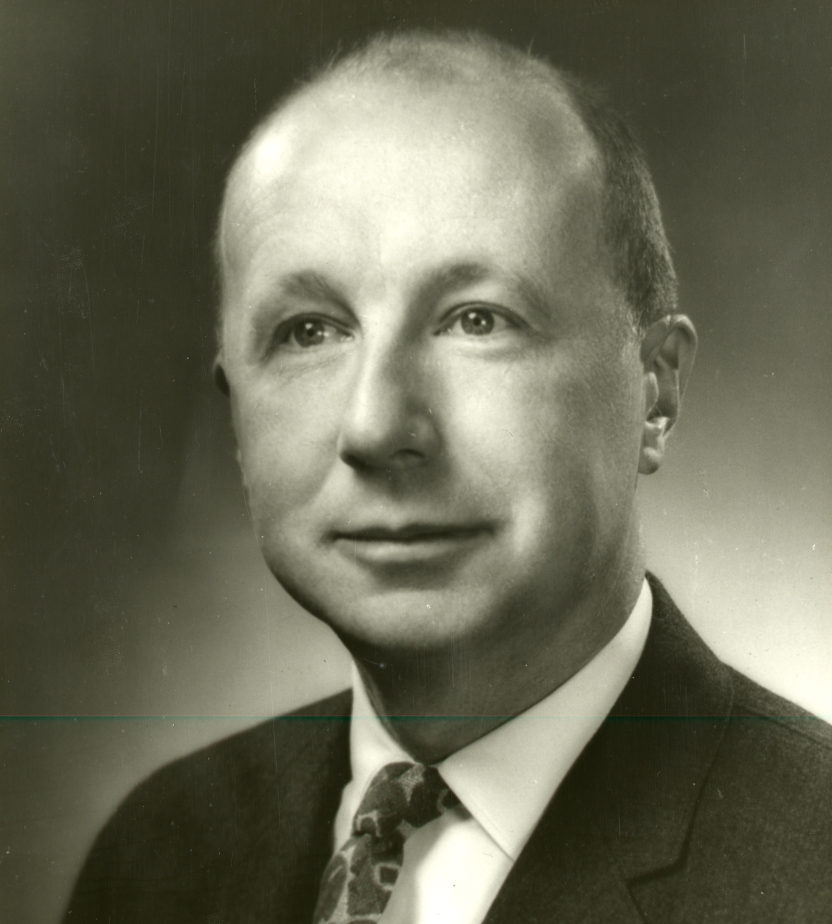Remembering Carroll Rikert

MIDDLEBURY, Vt. — Treasurer emeritus Carroll Rikert Jr., who worked at Middlebury College from 1952 to 1983, died on Friday, June 12, 2015, in Ithaca, New York. He was 97 years old.
The College treasurer for 17 of his 31-year tenure, Rikert managed financial and administrative operations during a period of great change at Middlebury and in the wider world. At a time when the domestic economy was buffeted by the twin shocks of stagflation and the 1973 oil crisis, Rikert—who was credited on campus with foreseeing the energy shortage before most other observers—helped guide Middlebury through this tumultuous era and was a primary reason that the College emerged from the period stronger than before. During Rikert’s tenure as treasurer, Middlebury’s endowment grew from $15 million to more than $100 million, and this record growth, when coupled with strict attention to controlled costs on campus, provided a measure of stability that the institution had lacked for generations.
“One expects financial officers to be tough and stubborn,” wrote Dennis O’Brien, a former administrative colleague, at the time of Rikert’s retirement. “One does not expect them to be ingenious, intricate, and intellectually challenging. Carroll not only demonstrated that financial prudence was necessary, but that the financial structure of the College was every bit as demanding as the best of Immanuel Kant.”
A philosopher, O’Brien was a senior administrator at Middlebury and worked closely with Rikert before assuming the presidencies at Bucknell University and the University of Rochester. Of the work of his former colleague, he says, “In many ways, the excellent financial condition that the College enjoys today goes back to the foundation that Carroll created.”
Carroll Rikert Jr. was born in Greenfield, Massachusetts, on March 31, 1918, and was raised on the campus of the Mount Hermon School (later known as Northfield Mount Hermon), where his father was the director of the physical plant. Rikert attended Mount Hermon, Harvard College, and Harvard Business School, and served as an ensign in the United States Navy during World War II. He began his career at the New York accounting firm Haskins & Sells before accepting a job as controller at Brown University. After six years at the Ivy League institution, Rikert—interested in expanding his purview beyond accounting—accepted the position of business manager at Middlebury in the summer of 1952. He held this post until his appointment as treasurer in 1964.
Until Rikert was named to the job, the position of treasurer had long been a volunteer assignment, filled by members of the board of trustees. With Rikert’s promotion, the job was expanded to include oversight of personnel management and the operation of the physical plant, in addition to running the finance office.
Rikert earned institutional renown as a fierce proponent of fiscal austerity. He was fond of quoting President James Armstrong’s adage that “the only freedom we have as human beings or as institutions comes from restraining ourselves.” He preached “wise restraint,” believing that if the institution was able to control the costs within its control, it would be able to afford true wants and needs. In an interview with Middlebury Magazine, he said, “In my experience, we have never, as financial officers, had to say no to anybody because we didn’t have the money. We’ve said, ‘Yes, we have the money, but we have lots of other things to spend it on’ … only when a consensus emerges that this is the direction Middlebury wants to go in, that this is a need that can no longer be foregone, will we do it.”
While this hard line may have earned respect, if not warm feelings, Rikert was also credited with many other initiatives that engendered a lifetime’s worth of fondness from the greater College community. Rikert initiated the push to extend retirement benefits to Middlebury staff—prior to his appointment, only faculty had a retirement plan—and he was a strong proponent of operational transparency that inspired campus-wide trust in, and loyalty to, the administrative officer.
Rikert was an ardent skier and a staunch supporter of the skiing community at the Snow Bowl. He worked races and carnivals, waxed poetic on the tradition of naming trails for Middlebury figures, and was on a first-name basis with recreational and competitive skiers, alike. On the eve of his retirement, Middlebury honored Rikert by placing his name on the trophy given to the winning women’s ski team at the annual Middlebury Carnival; a year later, the College named its Nordic ski area at Bread Loaf for Carroll and his wife Jane.
After retiring from Middlebury, Rikert moved to Rockport, Maine, where he and Jane lived until their relocation to Ithaca in 2000. Jane Rikert died on December 2, 2006. Carroll Rikert is survived by four children: David Rikert of Portland, Oregon; Rachel Jane Burbank of Santa Barbara, California; Hannah Rikert Morvan, Middlebury Class of 1970, of Northfield, Vermont; and Jon Corson-Rikert of Ithaca, New York.

